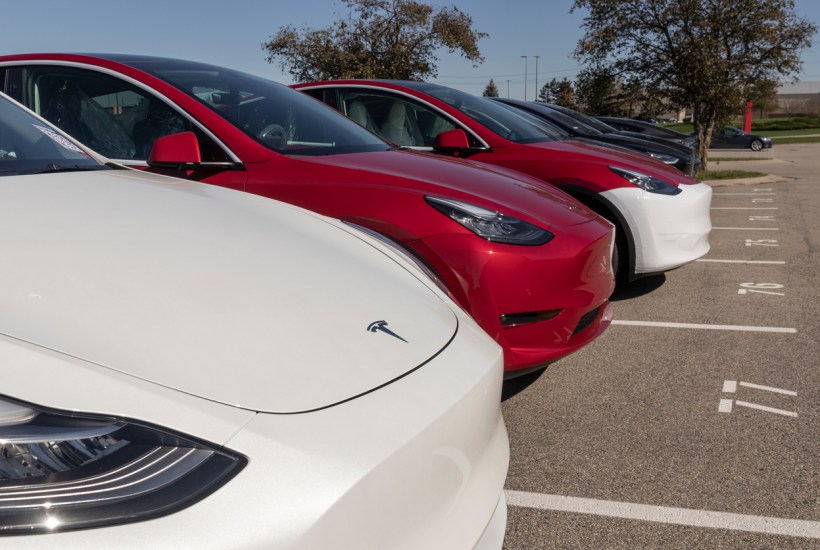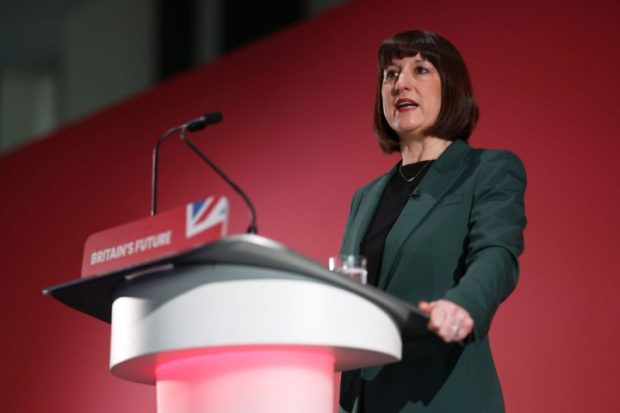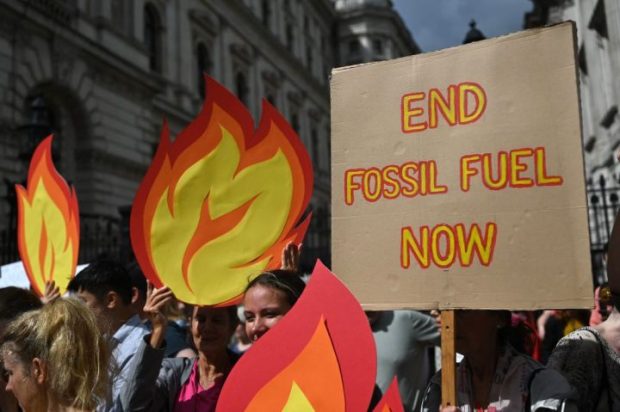There were some very chunky tax rises in the Autumn Statement, most of them using the device of ‘fiscal drag’, whereby tax thresholds are not raised with inflation. But there is one tax where Jeremy Hunt could have gone further. Fans of electric cars may be displeased to learn that they will have to pay vehicle excise duty from 2025 – the ‘Tesla tax’, as it has been dubbed. But given the dire state of the public finances you have to wonder why the Chancellor is waiting three years to extract more money from this source.
Electric vehicles are threatening to punch their own black hole in the public finances
A disproportionate number of electric cars sold, after all, are towards the upper end of the market – so charging them road tax could be presented as a tax on the wealthy. Electric vehicles have made a lot less headway in the mass market, thanks in large part to their higher purchase costs as well as to problems recharging them – which is not much fun if you live in one of the eight million or so UK homes which have no adjacent off-street parking.
The imposition of road tax will inevitably make electric cars less financially attractive, but it certainly won’t be the end of the bad fiscal news for owners. Electric vehicles are threatening to punch their own black hole in the public finances. This financial year the Office for Budgetary Responsibility expects vehicle excise duty to raise £7.2 billion in revenue and for fuel duty to raise £26.2 billion. Trouble is, pure electric cars contribute none of this – all they provide is a small amount of VAT through the 5 per cent levied on energy bills. By contrast, around 60 per cent of the pump price of petrol and diesel is made up of fuel duty and VAT.
It is inconceivable that the government is going to sit by and watch as over £30 billion a year worth of revenue from road vehicles simply disappears. Neither can it simply transfer fuel duty to electric charging. Given that most electric cars are charged at home it would mean pushing up the cost of domestic bills – unless perhaps the government mandated that electric vehicles could only be charged from dedicated sockets with their own meter, something which would be very difficult to enforce. If the government tried to levy duty on public electric charging points only, on the other hand, it would create an even bigger divide between motorists who have a private driveway and those who do not.
The only real answer, if the government wants to preserve revenue, is some kind of road pricing, where motorists are charged by the mile, via either automatic number plate recognition or GPS tracker devices. Whenever this has been proposed in the past, governments have beaten a hasty retreat, realising just how unpopular it is – not just from the tax point of view but also from the surveillance angle.
But sooner rather than later the government is going to have to make a decision –followed by an unpopular announcement. Now, perhaps, would not be the most politically astute time to do so.
The post Hunt’s ‘Tesla tax’ doesn’t go far enough appeared first on The Spectator.
Got something to add? Join the discussion and comment below.
Get 10 issues for just $10
Subscribe to The Spectator Australia today for the next 10 magazine issues, plus full online access, for just $10.





















Comments
Don't miss out
Join the conversation with other Spectator Australia readers. Subscribe to leave a comment.
SUBSCRIBEAlready a subscriber? Log in